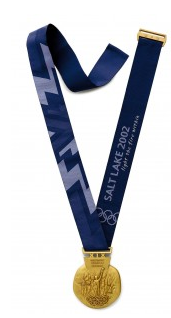Have you been watching the Winter Olympics? Congratulations to the US for winning the first gold medal of the games in Slopestyle (snowboarding). But did you know that the medal winners from the US will have to pay income taxes on their winnings, including the value of the medal?
American’s for Tax Reform posted information during the 2012 London Summer Olympics on the taxes medal winners will have to pay.
So how much will U.S. Olympic medal winners have to pay in taxes to the IRS?
Medal Tax Prize Tax Total Tax Burden Gold $236 $8,750 $8,986 Silver $135 $5,250 $5,385 Bronze $2 $3,500 $3,502 American gold medal winners will pay the IRS up to $8,986. Silver medal winners will pay up to $5,385. Bronze medal winners will pay up to $3,502.
The medals value changes each Olympics as they all weigh different amounts and contain varying amounts of the precious medals. There are also prizes that accompany each medal for US athletes: $25,000 for gold, $15,000 for silver, and $10,000 for bronze. Many argue that the cash winnings should be taxed, just as winnings from a game show or the lottery are taxed. But the value of the medal should not be taxed because it is not income until it is sold for a defined monetary amount.
Are other awards to athletes taxed on their value? Such as a super bowl ring, Emmy award, Wimbledon cup, etc. These awards are typically made of expensive material, such as real gold or silver. But should they be taxed on their value? I am unsure if these other awards are taxed on their value, but under the U.S. tax law, athletes must add the value of their Olympic medals and prizes to their taxable income.
So how does this relate to North Carolina? Well, North Carolina uses a taxpayer’s federal adjusted gross income as the base of North Carolina’s income taxes. So if an Olympic athlete is from North Carolina and wins a gold medal, they are not only taxed at the federal level, but at the state level as well. Should the Carolina Panther’s pay income tax on their super bowl rings, or the Carolina Hurricane’s pay taxes on the Stanley Cup, or a North Carolina Olympic athlete pay taxes on the value of their Olympic medal? Legislators can choose to exclude these things from the income tax at a state level – maybe that would start a trend to only tax true earnings instead of physical objects such as a medal.



